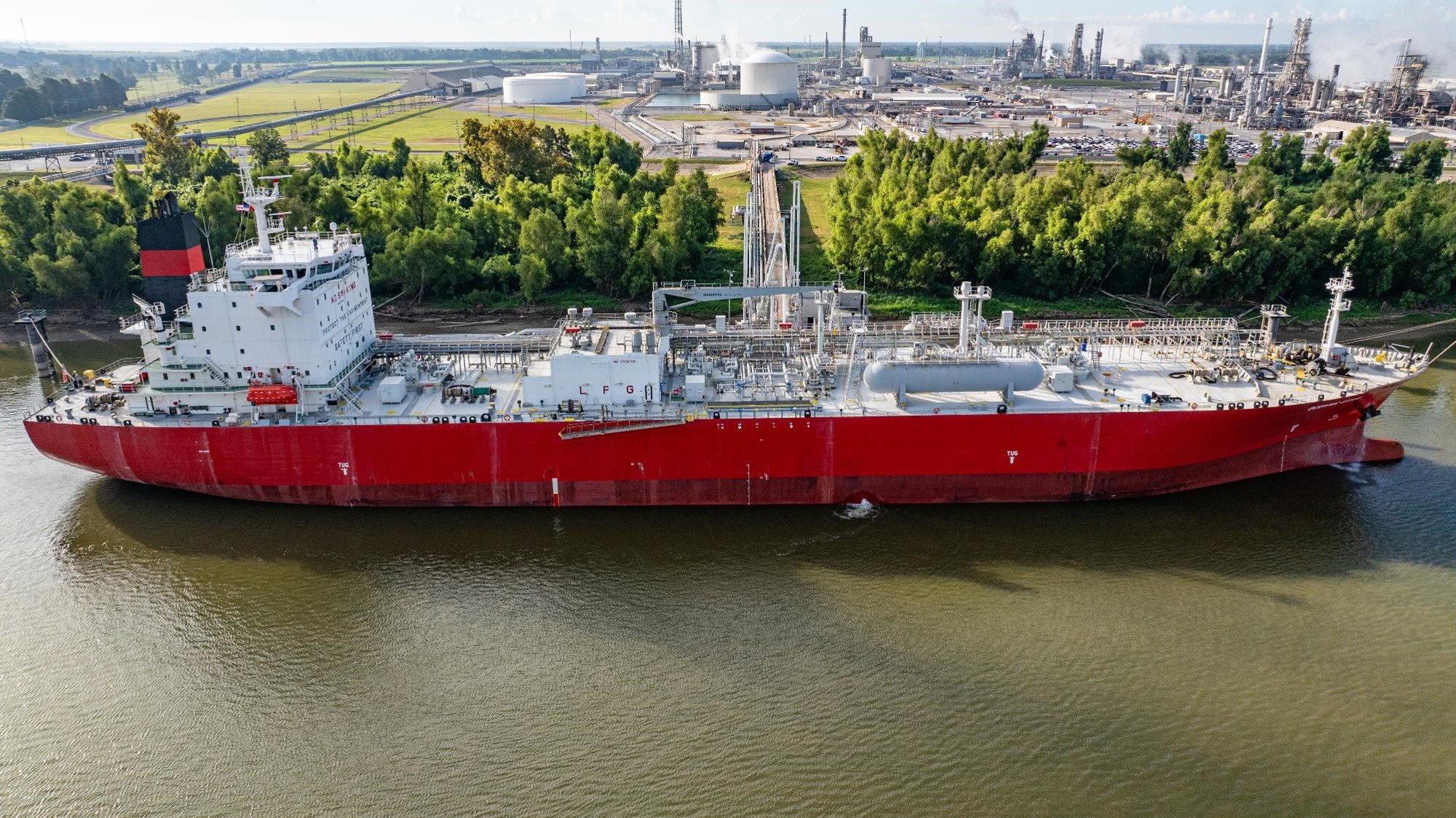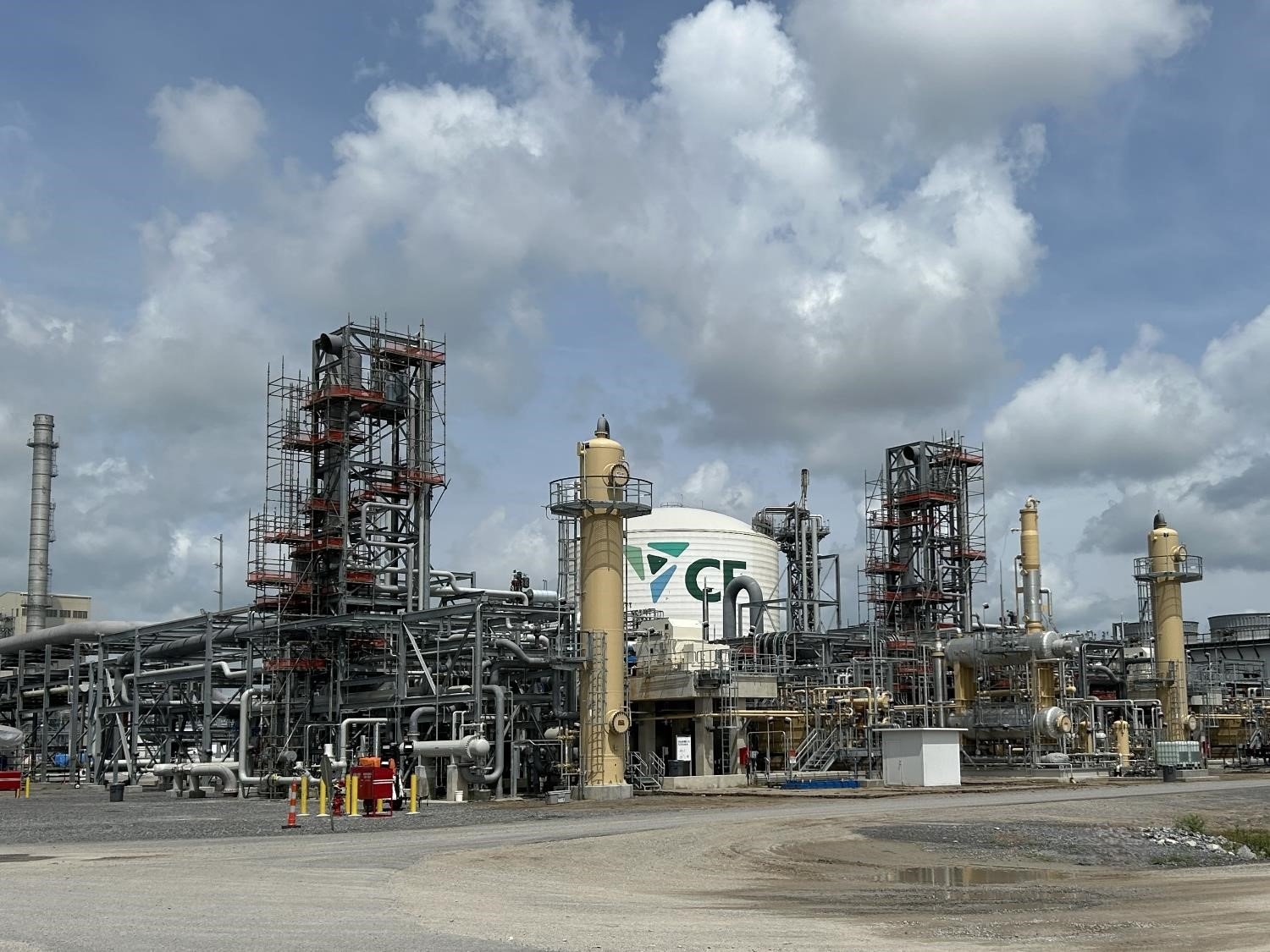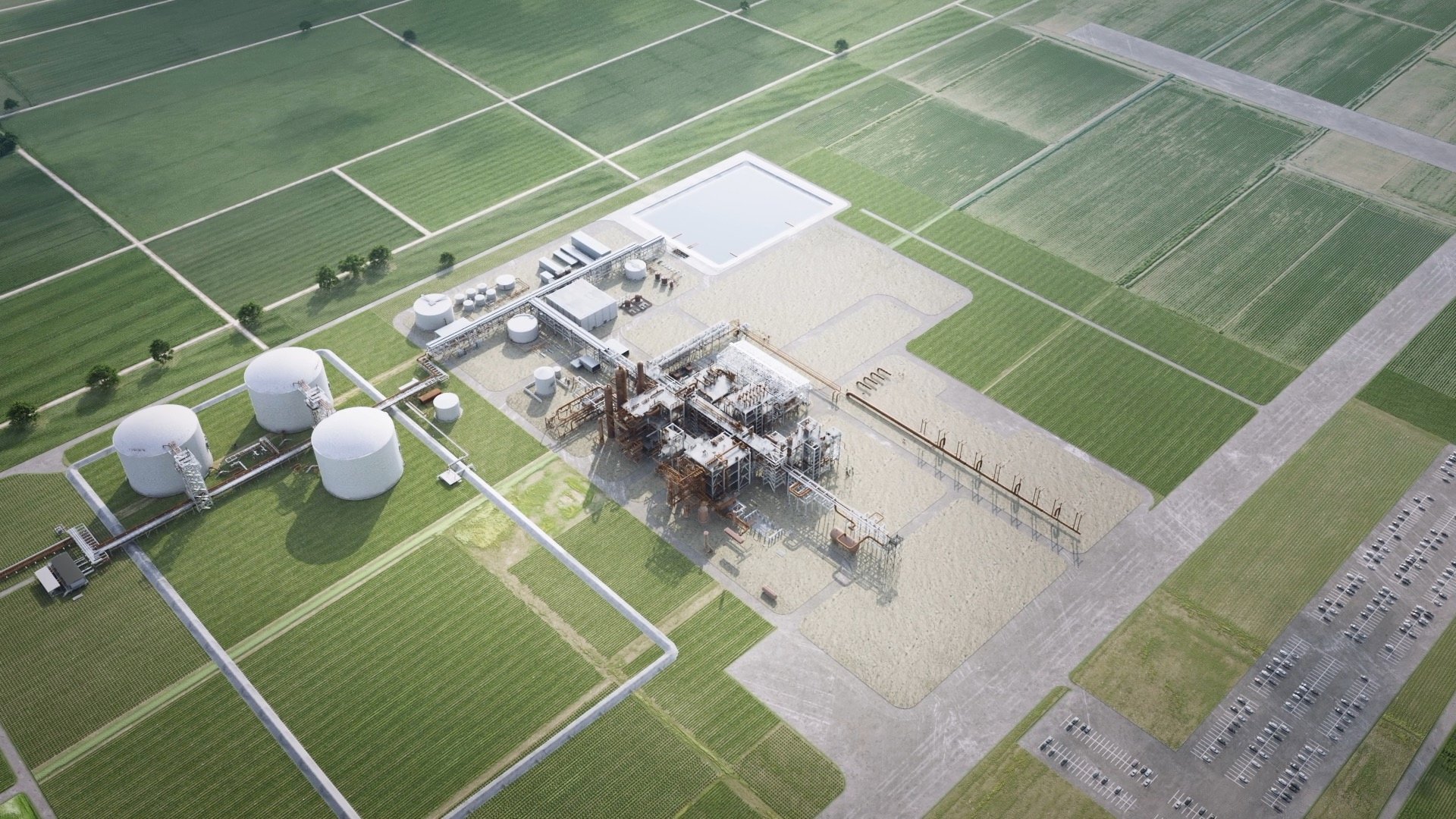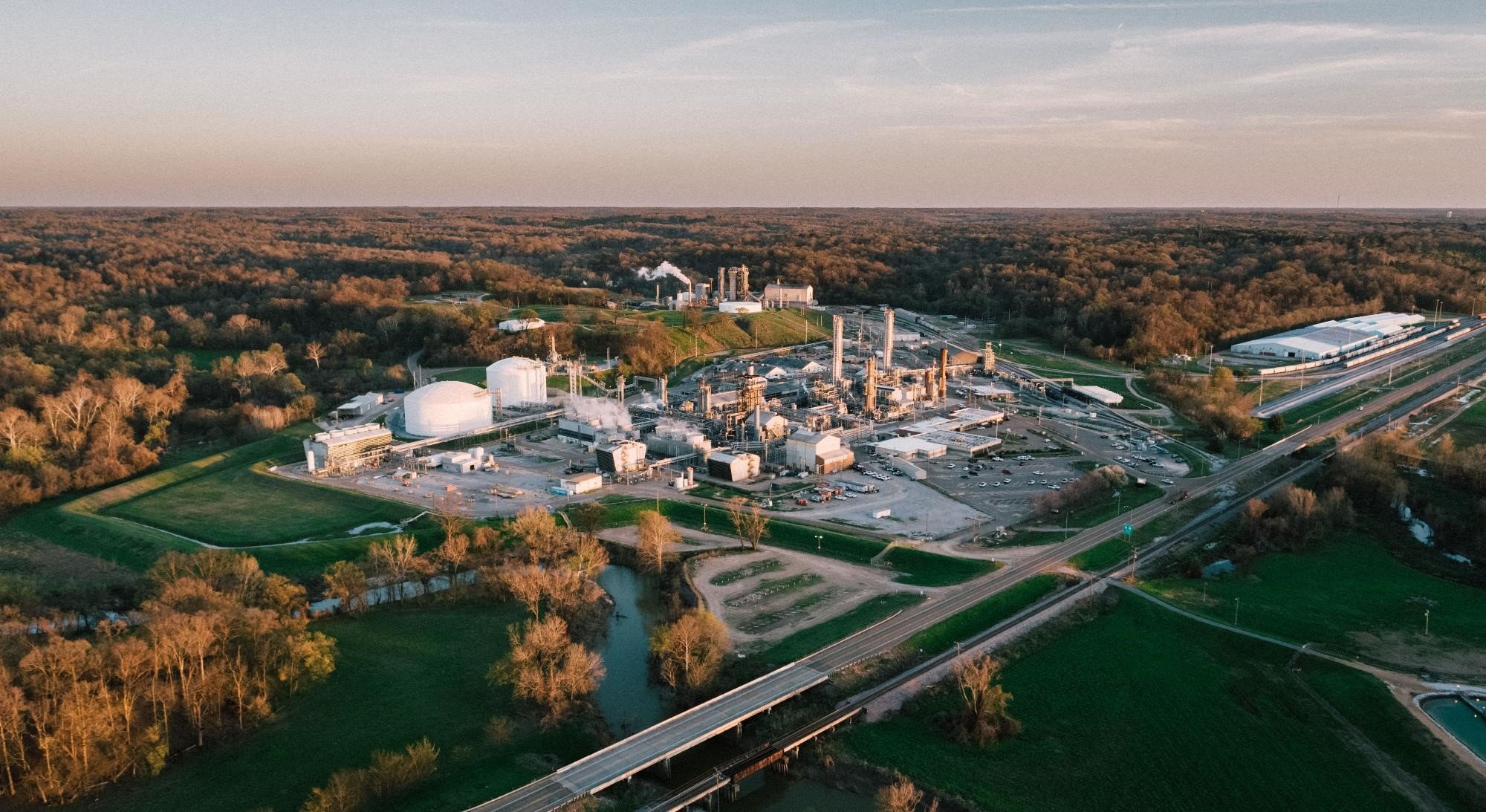Decarbonization Leadership
CF Industries: A decarbonization leader
Profitable Decarbonization
In 2020, CF Industries refined its corporate vision to include a commitment to decarbonization to enable the production of low-carbon ammonia. As part of that commitment, we established a goal to reduce our Scope 1 carbon emissions intensity per product ton by 25% by 2030.
We are well on our way to exceed that goal by 2030, with two decarbonization projects coming online in 2025 that will reduce greenhouse gas emissions from our sites by over 2.5 million metric tons CO2-e on an annual basis. These projects represent profitable decarbonization as each has a strong return profile. They also open new growth opportunities for CF Industries.
Why Decarbonize?
We will be the first in our industry to decarbonize our network at a measurable level. Our decarbonization investments provide CF tangible benefits: long-term sustainability, a significant return profile, and a product offering to existing and new customers. We expect to accrue both structural and market benefits.
Structural Decarbonization Benefits
We will earn structural incentives just for decarbonizing.
This includes tax incentives in the United States, such as the 45Q tax credit for carbon capture and storage in a Class VI permitted well.
We will also avoid full carbon taxes in Canada and Europe, and gain a competitive advantage over conventionally produced ammonia, by producing our products with a lower carbon intensity.
Market Decarbonization Benefits
We also expect to earn market benefits for decarbonization. This includes selling low-carbon nitrogen products for a premium. In September 2025, we completed our first two shipments of low-carbon ammonia to end users in Africa and Europe.
In addition, we have the opportunity to monetize decarbonization through the sale of carbon credits. This is the approach we are taking with our Verdigris N2O abatement project and the Low-Carbon Fertilizer Alliance. See below for more information.

Decarbonization Roadmap
CF Industries established a roadmap to achieve our 2030 Scope 1 carbon dioxide-equivalent emissions intensity reduction goal and our Scope 1 and 2 net-zero goal by 2050.

Decarbonization Case Studies

Donaldsonville Complex Carbon Capture and Storage Project
In July 2025, we started-up the carbon dioxide (CO2) dehydration and compression facility at our Donaldsonville Complex in Louisiana. The facility enables the transportation and permanent geological storage of up to 2 million metric tons of CO2 annually that would otherwise have been emitted into the atmosphere. ExxonMobil, the Company’s carbon capture and sequestration (CCS) partner for this project, will be transporting and permanently storing the CO2.
Learn More
Blue Point joint venture to build world’s largest greenfield low-carbon ammonia plant
In April 2025, CF Industries, the world’s largest producer of ammonia, JERA Co., Inc., Japan’s largest energy company, and Mitsui & Co., Ltd. (Mitsui), a leading global investment and trading company, announced a joint venture for the construction, production and offtake of low-carbon ammonia. The low-carbon ammonia production facility will have an annual nameplate capacity of approximately 1.4 million metric tons, which would be the largest ammonia production facility by nameplate capacity in the world. Production of low-carbon ammonia is expected to begin in 2029.
Learn More
Yazoo City Complex carbon capture and sequestration project
In July 2024, CF Industries announced that it was moving forward with a carbon capture and sequestration project at its Yazoo City, Mississippi, Complex that is expected to reduce carbon dioxide emitted to the atmosphere from the facility by up to 500,000 metric tons annually. As part of the project, the Company has signed a definitive commercial agreement with ExxonMobil for the transport and sequestration in permanent geologic storage of the CO2. Sequestration is expected to start in 2028.
Learn More
Decarbonizing the agricultural supply chain with the Low-Carbon Fertilizer Alliance
In March 2025, CF Industries joined the Low Carbon Fertilizer Alliance, a collaborative initiative managed by 3Degrees, designed to help reduce emissions in agricultural supply chains, as founding manufacturing member. With funding to be secured through the Alliance, CF Industries has committed to complete a new nitric acid plant emissions abatement project at its Verdigris, Oklahoma, manufacturing facility, which is expected to reduce emissions from the facility by 600,000 metric tons CO₂e/year beginning in 2025.
Learn More